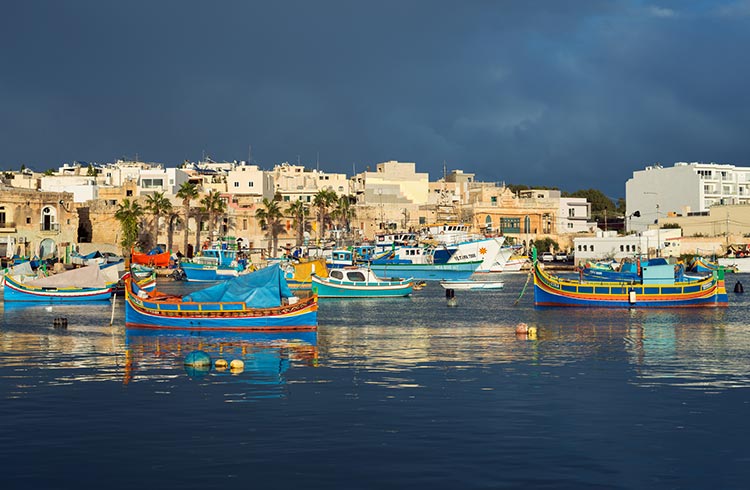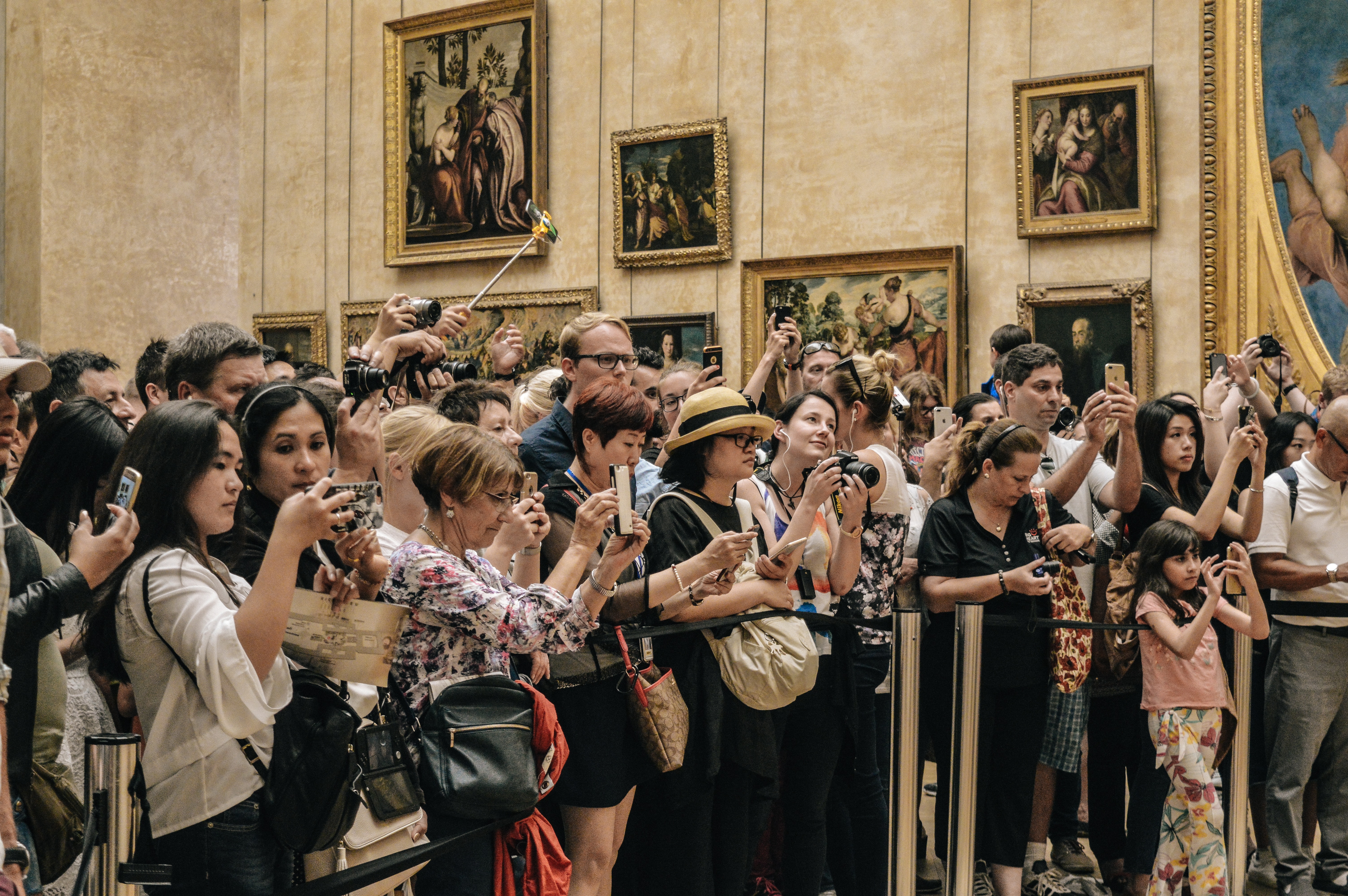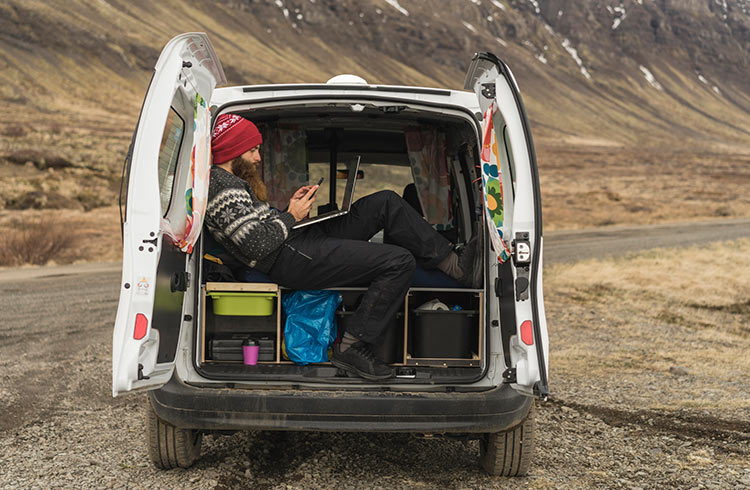Water Quality & Floods in Malta: What You Need to Know
Here's what you need to know about the toxic taste of local H2O, flooding and tap water quality in Malta.
 Photo © Getty Images/Ryzhkov_Sergey
Photo © Getty Images/Ryzhkov_Sergey
Water is a problem in Malta – there's either not enough or too much. The tiny islands don't have rivers, so tap water is desalinated seawater and groundwater, of dubious quality.
Many people rely on rain, which rarely falls during summer (June to August) but floods during winter (December to February).
Water tastes toxic in Malta – should I be worried?
In a study led by the Barcelona Institute for Global Health, research identified Malta's tap water is linked to a fifth of bladder cancer cases due to exposure to chemicals. Official reports still say the tap water is safe to drink in Malta, but it tastes awful. The desalination process removes particulates and contaminants but leaves it heavy in minerals. So while it's supposedly not toxic, many visitors find it hard to stomach. Traveler's diarrhea is the most common illness to strike tourists in Malta, but there's no cause other than a change in the water.
The desalinated water is clean and safe when it leaves the plant, but there's no vouching for the cleanliness and integrity of the pipes that deliver water around Malta. Many of the pipes are very old and cracked. If you're unsure, ask your accommodation staff for their opinion.
In apartment buildings the water may be pumped to roof-top holding tanks before coming out of the tap. Some of those tanks are in poor shape. Double check with locals in the building if you want to be 100% confident in what you're drinking
Can I drink tap water in Malta?
Seasoned Malta visitors say a combination of tap water and boiled water is best. Boil the water before drinking it, then let it cool and fill up your reusable water bottle before you go out each day. Use tap water to brush your teeth, shower and cook (perfect for pasta, there's no need to add salt), but drinking boiled tap water or straight tap water should be safe.
It comes down to your tastebuds. Just be aware boiling tap water does not remove dirt, minerals and other debris that may be in the tap water, which means the heavy mineral content might ruin your cup of tea.
Water everywhere
If you're in Malta during the summer months there's no need for an umbrella. The average rainfall in July is just one millimeter (.03 inches) – that amount of water wouldn't even settle the dust.
But come October and the islands are awash with rain, an average of 120mm (almost five inches) falls in tropical downpours.
Old watercourses, long since built over, revert to their original state, and streets become raging torrents. Roads, cars, people and anything not nailed down gets washed away.
There's an infamous incident from the October 2010 floods, in which a coffin was videotaped floating don the Qormi valley. Thankfully it wasn't from a cemetery – an undertaker's warehouse with 800 stored coffins had been inundated by rain.
Now it's a part of the Eurozone, Malta is supposed to be attempting to comply with European flood prevention practices, so things are improving – slowly.
If you're in Malta during one of these downpours check with locals before venturing out. They'll know which streets always flood and how likely it is you'll encounter a wall of water coming your way.
Tips for dealing with traveler's diarrhea
The use of loperamide (anti-diarrheal medicine) is controversial. While loperamide does prevent diarrhea, that may not always be a good thing. If a traveler has an invasive and especially strong infection, you are essentially trapping the bacteria in the intestine/colon where it can do the most amount of damage. Better out than in, as I always say.
Diarrhea is the body's way of excreting these damaging microbes. Travelers who do not know the cause of their diarrhea should use loperamide with caution, as they may be doing more harm than good.
Those travelers who simply cannot afford to be slowed down by diarrhea (business meetings, honeymoons, athletes etc) can speak with their doctor about using bismuth subsalicylate (Pepto Bismol) as preventative measures.
Taking two tablets every morning and two tablets every night for the duration of the trip has been shown to decrease rates of TD (traveler's diarrhea). This may not be for everybody, so our advice is to speak with your doctor prior to traveling for advice that is right for you.
Related articles
Simple and flexible travel insurance
You can buy at home or while traveling, and claim online from anywhere in the world. With 150+ adventure activities covered and 24/7 emergency assistance.
Get a quote

11 Comments
The water from roof top tanks on the old apartment building in Sliema where I stayed made me sick with traveler's diarrhea for six days - and stopped only when I realized I didn't have the flu and started drinking bottled water. It ruined my vacation in Malta and left me feeling weak. If you know any more about those water tanks on the roof I wish you would email me. Thank you.
Came back from Malta Sept 16th 2017 and still having stomach issues... would like to know what parasites might be in the water and the best way to cleanse.
Strange, I’ve been in Malta for six weeks, moving around to different accommodation and I haven’t had any issues with the tap water. I got over the bad taste in the first week.
Tank water is supplied to bathrooms. It is not drinking water because the roof-top tanks cannot be guaranteed safe. It's suitable for bathing, brushing teeth, etc.
Water from the kitchen sink comes from the main water line and is safe to drink. Malta's Water Services Corporation tests the country's water sources daily. They operate a specialised team and one of the island's biggest laboratories.
Hotel room water probably comes from roof top tanks. Apartment kitchen water should come from the mains.
The worst water in Europe!! DO NOT DRINK IT!!! Exposure to chemicals in Malta’s tap water is linked to almost a fifth of all bladder cancer cases, a study published on 16/01/2020.
According to their findings, Malta’s tap water was found to contain the second-highest amount of THMs – 49.4 μg/L. Only the water in Cyprus was deemed worse off than that in Malta, with 66.2 μg/L.
I presume after the recent announcement over the results of water testing done on malta tap water that it is unsafe to drink and bad for your health that you will be removing the section on your website where you advocate drinking it? https://timesofmalta.com/.../maltas-tap-water-linked-to...
Thanks in advance for your quickest response.
Hi Amie,
Thank you for bringing this news to our attention. We will endeavour to research and rewrite our advice based on this information.
Cheers,
Amelia@WorldNomads
I never drink tap water on any island in Europe, Malta, Aeolian Islands, Santorini, Mykonos, Sicily that I visit ofc why is that? Because every island I visited doesn’t have any mountains so why should I risk it! For water system to be very well drained you need constant rain and good rain not like in most places in south of EU, it usually soil rains because of the sahara desert.
So my suggestion is, to stick with bottled water when you visit very very small islands.
My advice is drink bottled water use it for making hot drinks you will find it's quite cheap 2-50euro for six 2ltr bottles we had no problems
Water quality is very poor in Malta.
Visit a civic amenity (waste dump) site and see how many water heaters have been disposed of.
I'm on my 3rd water heater in 6 years.
My plumber suggested the water is toxic to wash machines, dishwashers etc.
TDS is incredibly high 720-820 ppm.
US suggests a max of 500 ppm.
I use a Brita Water System with a P3000 cartridge, helps for the coffee machine and kettle.
I would never, ever drink tap water in Malta.
I’m in Malta right now and in only one day have an upset stomach, in 4 star hotel and use tap water only to clean teeth and to boil for tea. Drinking bottled water otherwise. Feeling rotten!